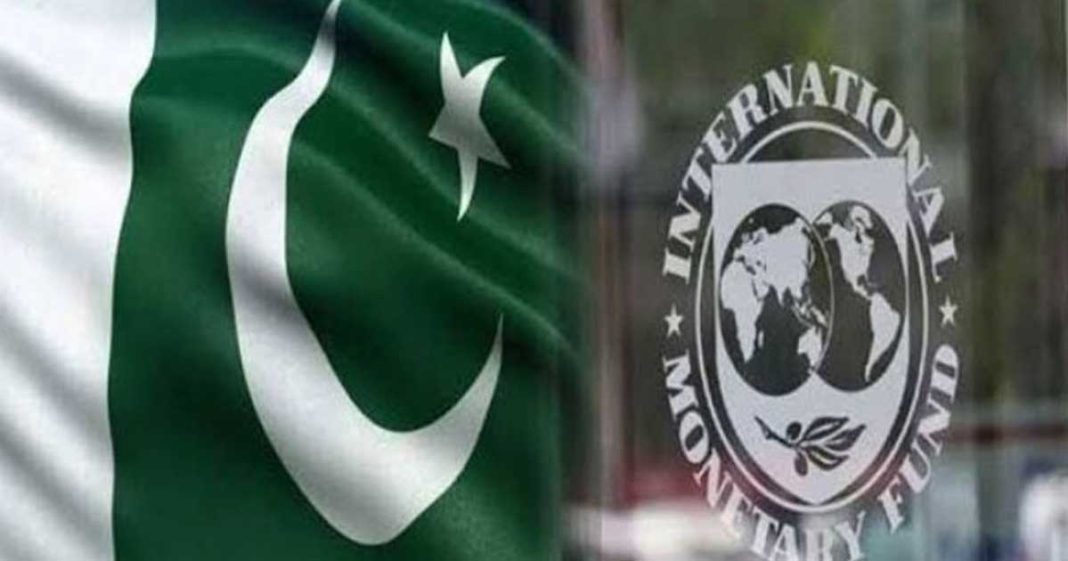As Pakistan prepares to face the lender of last resort for the 9th review of a multibillion-dollar bailout package that has kept Pakistan afloat, the Fund is apprehensive of policy slippage, especially with reference to primary deficit.
By Muhammad Ali
ISLAMABAD: Although the authorities in Pakistan believe economy is on course to achieve budgetary targets set for the current fiscal year, the International Monetary Fund (IMF) staff believe Islamabad needs to make a course correction now by creating additional fiscal space through a minibudget.
Well-placed sources speaking on condition of anonymity say the divergence of views surfaced as Federal Minister for Finance and Revenue Senator Ishaq Dar held an online meeting with IMF Mission Chief for Pakistan the other day.
A brief press release issued by Dar’s office following the meeting with Nathan Porter, however, said nothing to suggest any difference of opinion.
The sources said the Fund mission seems to be insisting on key measures including the passage of the putative minibudget before it can field a mission to Pakistan for the 9th review of its Extended Fund Facility (EFF) for Pakistan.
Minibudget: Why and why not
Islamabad makes much of a primary surplus it has been able to achieve as of now, but the IMF has other thoughts. The Fund staff project Pakistan’s primary deficit to escalate in the coming months, touching PKR 2.2 trillion by the end of the fiscal year on June 30, 2023.
This is equivalent to 2.8 percent of Pakistan’s GDP, and broadly in line with informed expectations.
Former finance minister Dr Abdul Hafiz Pasha, for instance, projected Pakistan to run primary deficit in the range of 2.6 to 2.7 percent of the GDP this fiscal.
He dropped the estimate at a webinar held by the Pakistan Institute of Development Economics (PIDE) before the monsoon flooding pummelled Pakistan, and barely a month after the ouster of Khan.
He also projected Pakistan’s budget deficit for the fiscal year 2021-22 at PKR 5 trillion or nine percent of the GDP, the highest in the history of the country.
In any case, based on its own projections, the IMF wants Pakistan to mobilise additional resources to create additional fiscal space to meet expenditure instead of running a fiscal deficit.
The Pakistan Democratic Movement (PDM) coalition government, on the other hand, heads to a general election in less than a year, and may think it is running out of political capital to inflict more pain on the masses.
The government’s poor showing in the by elections in recent months has been attributed to painful economic reform enacted in a pinch to get the Fund bailout back on the rails after taking over from former Prime Minister Imran Khan.
Enacting strategic reform
Pakistan informed the IMF that the government intends to soon summon a joint sitting of the Parliament to complete the enactment of the State-Owned Enterprises (Governance and Operations) Act, 2022.
Passed the National Assembly on June 6, 2022, the legislative initiative ran aground in September when a Senate committee rejected it, owing largely to lukewarm reception from all sides including treasury benches.
Pakistan and the IMF first discussed the enactment of the law, intended to reform cash-bleeding public sector entities, in 2019. It has since been backed by at least three finance ministers including PTI’s Hamad Azhar and Abdul Hafeez Shaikh and PDM’s Miftah Ismail, who was able to breeze it through the National Assembly.
There are 212 SOEs under the administrative control of 20 divisions of the various government. Most of these organisations are cash guzzlers, although a few of them are making profit. Their losses aggregate to approximately 1 percent of the GDP.
The purpose of this bill is to improve their governance, operations, and performance by introducing more transparency and more stringent disclosure requirements instead of auctioning them off.
However, the bill failed to clear the Senate after the Senate Standing Committee on Finance and Revenue rejected it on September 21, 2022 after detailed deliberations spread over several meetings.
One of the reasons for its rejection was the Ministry of Finance’s inability or unwillingness to present the Committee members complete data on the SOE’s, including information on the board of directors of each enterprise, its profit and loss account, its assets and liabilities, and its controlling ministry.
It remains to be seen if the government can muster what it takes to push through this measure, contemplated as part of strategic economic reform necessary to turn around the country’s economy.
Leeway on safety nets
The statement put out by the Ministry of Finance the other day said Dar held an online meeting with Porter to discuss “the progress made with the ongoing IMF program, particularly the impact of floods on macroeconomic framework and targets for the current year”.
It said the finance minister reiterated Pakistan’s commitment to successfully completing the IMF program, and that the IMF indicated its willingness to sympathetically view targeted assistance to the poor and vulnerable, especially the flood affectees.
“It was agreed that expenditure estimates for flood related humanitarian assistance during the current year will be firmed up along with estimates of priority rehabilitation expenditure”, the statement said.
“In this regard engagement at the technical level shall be expeditiously concluded for proceeding with the 9th Review.”
Copyright © 2021 Independent Pakistan | All rights reserved




